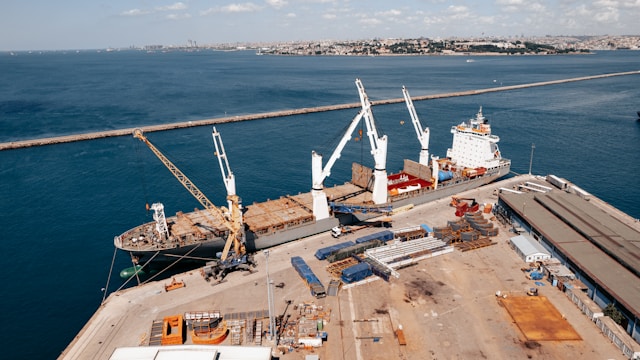
The construction industry has undergone a dramatic transformation in the past few decades. Traditional methods once relied heavily on manual work and conventional tools, but modern projects now use cutting-edge technologies and sustainable practices. This evolution reflects the increasing demand for efficient, safe, and environmentally conscious solutions in the built environment.
Population growth, urban expansion, and global challenges have accelerated the demand for new construction approaches. From high-tech skyscrapers to sustainable housing projects, innovation is transforming the way communities are designed and built.
Eco-Friendly Materials Driving Change
Sustainability is at the core of today’s building strategies. Developers are increasingly adopting eco-friendly materials, such as bamboo, recycled steel, and low-carbon concrete, to minimize their environmental impact. These materials not only last longer but also minimize waste and greenhouse gas emissions.
Self-healing concrete and cross-laminated timber are examples of new advancements gaining popularity. By integrating these materials into construction, builders are meeting both regulatory demands and consumer expectations for greener living spaces.
Smart Technologies in Modern Projects
Innovative technology is revolutionizing the way buildings are designed and managed. Building Information Modeling (BIM) enables digital simulations that allow teams to plan projects with greater accuracy and efficiency. This innovation reduces costly errors and streamlines collaboration across teams.
Beyond planning, smart sensors and Internet of Things (IoT) devices enable the monitoring of energy consumption, detection of structural issues, and maintenance of safety. Smart buildings are now equipped to adapt to user needs, offering both convenience and long-term cost savings.
Robotics and Automation in Construction
The integration of robotics and automation is addressing long-standing industry challenges. Automated machinery can handle repetitive and labor-intensive tasks, reducing human error while increasing efficiency and speed. For example, robotic bricklayers and concrete printers are becoming more common on job sites.
Drones are also changing the way sites are surveyed and monitored. They provide real-time visuals, track progress, and enhance safety inspections. By leveraging automation, companies improve productivity while maintaining high construction standards.
Green Building and Energy Efficiency
Green building design has become a standard in modern construction. Developers incorporate solar panels, wind turbines, and rainwater harvesting systems to reduce their dependency on resources. Energy-efficient lighting, smart thermostats, and advanced insulation are now standard features in both residential and commercial buildings.
Certifications like LEED and WELL push builders to meet higher sustainability benchmarks. As a result, eco-friendly projects appeal not only to environmentally conscious consumers but also to investors looking for long-term cost efficiency.
Urbanization and the Rise of Smart Cities
Rapid urbanization is driving innovation in the construction industry. With limited space in growing cities, high-rise apartments and mixed-use complexes provide efficient housing and commercial solutions. These projects combine functionality with sustainability to accommodate modern urban lifestyles.
Innovative city initiatives are also expanding globally. These cities integrate technology, green spaces, and efficient transport systems to create sustainable and livable environments. Construction plays a key role in bringing these ambitious visions to life.
Challenges Impacting the Industry
Despite remarkable progress, the construction industry continues to face several challenges. Rising material costs and global supply chain disruptions often delay projects and increase expenses. These financial pressures force developers to seek cost-effective yet high-quality solutions.
Labor shortages are another concern. As construction requires both traditional and technical expertise, companies are struggling to find skilled workers who can adapt to new technologies. Addressing this issue is critical for the industry’s growth.
Digital Transformation in Construction
Digital tools are now at the forefront of construction strategies. Cloud-based platforms enable project stakeholders to share updates in real-time, ensuring smoother communication and faster decision-making. Augmented and virtual reality are also being used to visualize designs before construction begins.
Artificial intelligence is another game-changer. By predicting delays, analyzing risk, and optimizing resources, AI reduces inefficiencies. These technologies make projects more cost-effective while enhancing quality control and ensuring a higher level of quality.
Workforce Training and Skill Development
As technology continues to shape the construction industry, workers must continually upgrade their skills to remain competitive. Training programs now emphasize digital literacy, safety management, and the operation of advanced machinery. This shift enables the workforce to meet modern demands while maintaining efficiency.
Apprenticeships, vocational training, and partnerships with educational institutions are helping bridge the skills gap. A well-prepared workforce not only ensures high-quality projects but also attracts global investment into the construction sector.
The Future of Construction
Looking ahead, the construction industry promises even more innovation. Modular construction—where building components are prefabricated off-site—will continue to gain momentum for its speed and cost savings. 3D printing technology could also make housing more affordable by reducing labor and material costs.
Sustainability, resilience, and digital transformation will continue to be the pillars of the industry’s growth. With these drivers, construction will play a vital role in addressing climate change, housing shortages, and the infrastructure needs of a rapidly expanding global population.
Building a Smarter Tomorrow
Modern construction is about more than just creating buildings—it’s about shaping a sustainable and connected future. Through eco-friendly materials, smart technologies, and innovative practices, the industry is redefining how we build and live.
Despite challenges, construction professionals are rising to the occasion with forward-thinking solutions. This new era of building emphasizes resilience, efficiency, and sustainability, ensuring that the spaces we create today will support future generations.